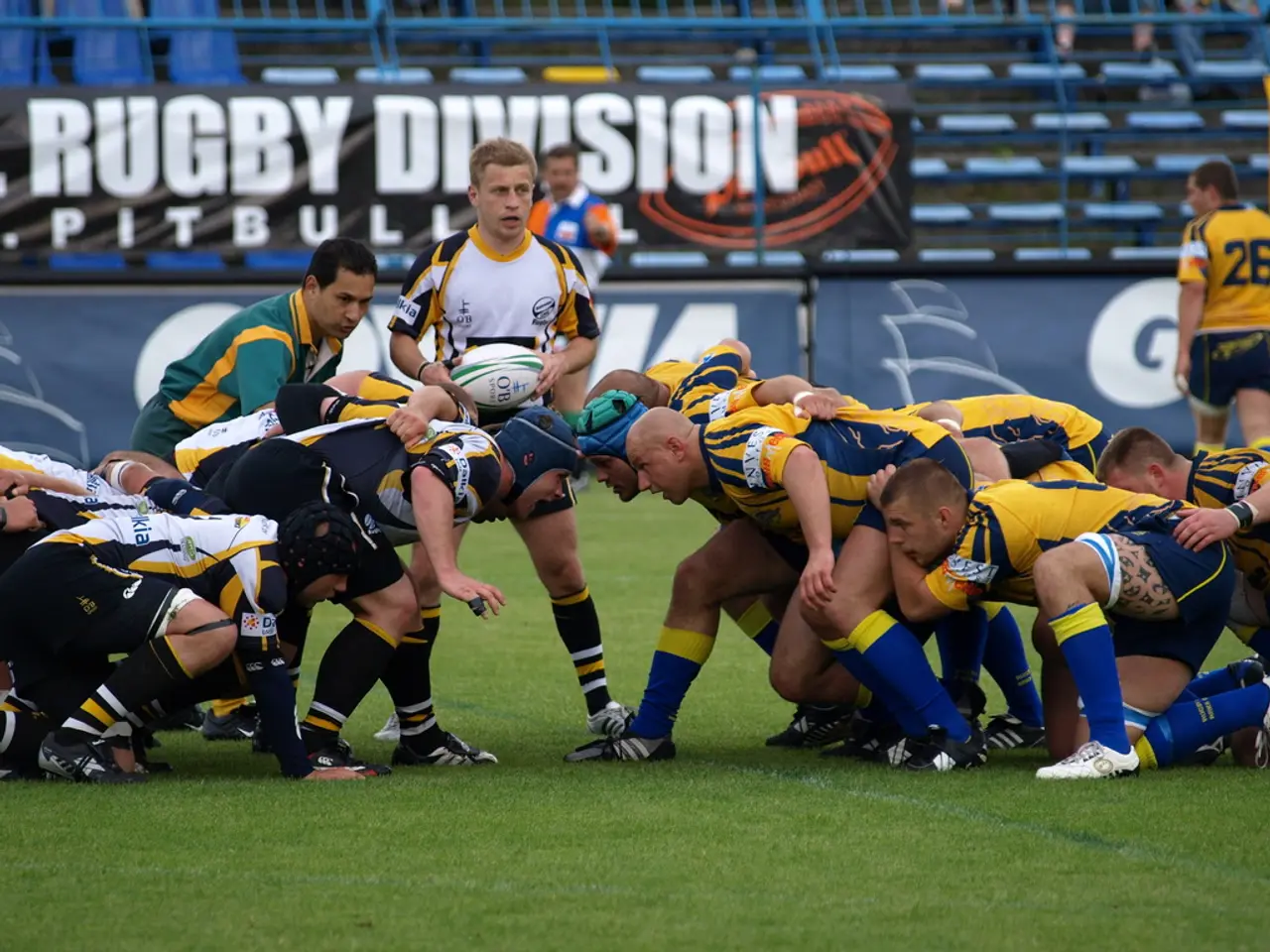Rugby League Offering an Opportunity for Social Mobility for Disadvantaged Youth
In the world of sports, rugby league stands out as a beacon of hope for disadvantaged youth. This ancient sport, originating from England in the late 19th century, has found a passionate following in countries like Australia, the United Kingdom, and New Zealand, and is now making a significant impact in the lives of young people from underprivileged backgrounds.
Social Mobility
Participation in rugby league can enhance social mobility by improving educational attainment, career opportunities, and life skills among disadvantaged and minority youth. Community sports clubs, especially in deprived areas, create life-changing opportunities that help vulnerable young people overcome social barriers. Rugby league involvement correlates with higher rates of high school and college graduation, leading to better wage outcomes and social advancement.
Sports Development
Rugby league offers structured avenues for physical development and skill-building. By engaging disadvantaged youth in consistent training and competition, it nurtures athletic talent and fosters discipline, teamwork, and resilience. Programs like Khelo Rugby demonstrate how passion for the sport is passed on, making the benefits of rugby accessible to underprivileged children and nurturing their athletic growth.
Community Engagement
Rugby league acts as a vehicle for social cohesion and community improvement, particularly in marginalized areas. It provides a positive social setting that helps bridge divides, supports youth inclusion, and encourages collective purpose. Sports clubs serve as thriving community hubs where disadvantaged youth can find mentorship and positive role models, further strengthening community ties.
Empowerment through Mentorship
Mentorship is a vital aspect of youth empowerment within this environment, helping younger athletes navigate both sports and life struggles. Experienced players and coaches often act as role models, sharing their knowledge and experiences with younger athletes. Mentorship can lead to a greater sense of belonging among young athletes and can significantly impact personal and professional development.
Beyond the Field
Rugby league offers numerous career opportunities for disadvantaged youth, extending far beyond playing on the field. Coaching provides a chance to educate future generations of athletes and foster community engagement. Sports management is another avenue worth exploring, with rewarding positions in event management, marketing, and administration within the sports industry.
In summary, rugby league contributes to disadvantaged youth's social mobility by supporting education and future employment prospects, advances sports development through skill and character building, and fosters deep community engagement by creating inclusive, supportive environments in vulnerable neighborhoods. It represents hope for many, particularly young people from disadvantaged backgrounds, providing a platform for personal growth, community spirit, and the exploration of potential career pathways. Every effort counts in shaping potential futures, with rugby standing as a powerful tool for transforming lives.
Educational resources and self-development opportunities can be found in rugby league, as it leads to higher rates of high school and college graduation among disadvantaged youth, contributing to better wage outcomes and social advancement.
Rugby league, being a popular sport with structured avenues for skill-building, provides a platform for underprivileged children to engage in regular training and competition, fostering athletic talent, discipline, teamwork, and resilience, thus promoting education-and-self-development through sports.




